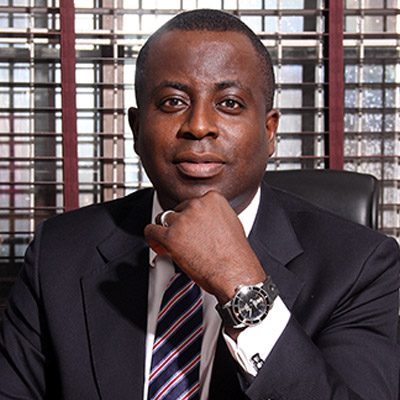5G-COVID-19 controversy will affect technology acceptability in Nigeria -Teniola
Olusola Teniola is the President of Association of Telecommunications Companies of Nigeria (ATCON). In this interview he speaks on 5G and the controversy around it and COVID-19. How can the man on the street understand what the 5G technology is? Through effective education and awareness it will be possible to get the average man […]

Olusola Teniola, ATCON-President
Olusola Teniola is the President of Association of Telecommunications Companies of Nigeria (ATCON). In this interview he speaks on 5G and the controversy around it and COVID-19.
How can the man on the street understand what the 5G technology is?
Through effective education and awareness it will be possible to get the average man on the street to understand the many benefits that the 5G technology brings to all of us. Simple communication by NCC, the Government at large and other stakeholders like ATCON, ALTON and service providers looking to invest and roll out 5G technology will go along way. In schools, Universities and at local community level will generate the proper level of awareness as well.
Technically, what are pros and cons of the 5G technology for a country like Nigeria?
The pros is that Nigeria will be able to create the network of the future that will take into consideration the needs and wants of the citizens as we migrate to a Digital Economy. The creation of jobs and the development of the youth in STEM and its application to Artificial Intelligence (AI), Robotics and Big Data will tap into the creative and innovative minds of the youth to create new types of employment and jobs and skill demands. The cons are limited by resistance to change and the scaremongers sowing seeds of fear into citizens. This resistance will create a skills gap and massive unemployment and the possibility of dominance by foreign powers.
Why do think will make some people even in advanced economy like the UK to believe the technology is responsible for COVID-19?
Misinformation and lack of effective communication is a strong cause. The recent lockdown in the UK has given an opportunity by those opposed to the deployment of 5G technology to spread fake news and fear into some parts of the population.
Can you actually say there is no link between 5G and COVID-19?
With no empirical evidence to prove it, then there is no link and we need to listen to the World Health Organisation (WHO) and government medical specialists about how COVID-19 is caused and spread and take proper measures to avoid the spread of the virus by following the advice of medical practitioners on self-isolating and keeping hands clean during these uncertain times.
What are the harmful effects of 5G?
None to date. No scientific data exists or research points to any harmful effects on human beings.
Our people believe so much in controversy theory. Don’t you think the theory woven around the 5G and COVID-19 will affect its profitability when it is eventually launched in Nigeria?
I strongly believe that this incident will have a negative short term impact on the 5G technology and in the long term may remain negative subject to trending reliable scientific studies. Otherwise, in the absence of this and in conjunction with relevant use cases the presence of 5G may become prevalent in Nigeria from 2025 onwards.
ITU and WHO haven’t said anything categorically on the controversy, could this be one of the reasons why it continues to get traction?
Further research needs to be done and shared before WHO and ITU can make a robust statement that is legitimate and based on empirical evidence . The challenge is the complex and dynamic nature of the subject matter renders it virtually impossible to determine exactly what can happen in the future. The best we have right now is what exists in 2G, 3G and 4G Radio Frequency specifications and Power Emission limits. This again is subject to debate within the scientific communities.
How should the Nigerian government approach this issue? The minister has said the country would not do anything on it yet until the report submitted to it properly scrutinised by experts. This has further reimbursed the belief of the theorists that there may be something fishy about the technology. How do you think Nigerian government should have addressed the issue?
The government acted wisely by allowing a study to be initiated independently after the 5G trial last year on both 3.5GHz and 26GHz spectrums. The sub 6GHz frequency ranges appear to already have a lot of research material available. However, very little has been done on frequencies above 6GHz and like when 2G technology was launched, no one on earth has a definite answer on what happens with wide and mass roll out of wireless (mobile) technology for the sort of applications envisioned to be developed on it.
What has this controversy done to the Nigerian telecom industry in terms of harm?
It is a wake-up call for us to take on board that we need to communicate in the language that our consumers understand. We are dealing with complex technologies and this sometimes causes doubt in the minds of those that don’t understand it. More data analytics to better understand our consumers has presented itself as an opportunity.
